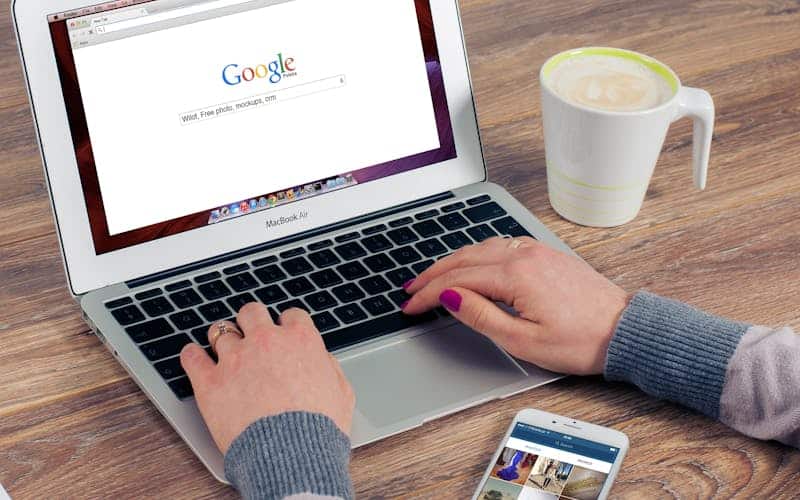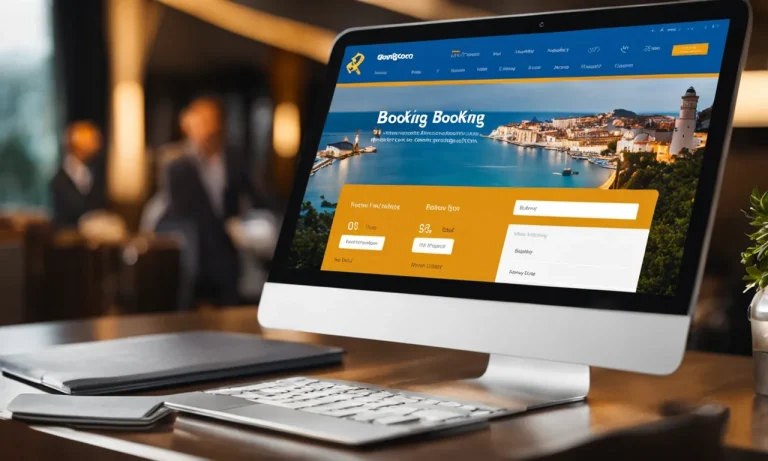Protecting your privacy while using public Wi-Fi is crucial, especially when it comes to browsing history.
If you’re short on time, here’s a quick answer to your question: Hotel Wi-Fi cannot see your incognito browsing history.
In this article, we will explore the concept of incognito browsing, how hotel Wi-Fi works, and the level of privacy you can expect while using it. We will also provide tips on how to enhance your online security and protect your sensitive information.
Understanding Incognito Browsing
What is incognito mode?
Incognito mode, also known as private browsing or privacy mode, is a feature found in most web browsers that allows users to browse the internet without leaving any traces of their online activities. When you use incognito mode, your browser does not store any browsing history, cookies, or temporary files on your device.
This means that no one using the same device will be able to see which websites you visited or any other information associated with your browsing session.

How does it work?
When you open a new incognito window, your browser creates a temporary session that is separate from your regular browsing session. This temporary session operates independently and does not have access to your stored browsing history, cookies, or other data.
Any websites you visit in incognito mode will not be recorded in your browser’s history, and once you close the incognito window, all data associated with that session is deleted.
What are its limitations?
While incognito mode provides a certain level of privacy, it is important to understand its limitations. While your browsing history may not be stored on your device, it does not mean that your online activities are completely invisible.
Your internet service provider (ISP), employer, or other network administrators may still be able to track your online activities, even if you are using incognito mode.
Additionally, websites you visit in incognito mode can still collect information about your visit, such as your IP address, location, and the pages you view. Your activity can also be tracked by third-party advertisers using cookies or other tracking technologies.
It is also worth noting that while incognito mode prevents your browsing history from being stored on your device, it does not protect you from malware, phishing attacks, or other online threats.
It is still important to exercise caution and use other security measures, such as antivirus software and secure internet connections, to protect your online privacy and security.
For more information about online privacy and security, you can visit websites like PrivacyTools.io and Electronic Frontier Foundation (EFF).
How Hotel Wi-Fi Works
Hotel Wi-Fi is a convenient amenity that allows guests to stay connected while they are away from home. But have you ever wondered how it actually works?
When you connect to hotel Wi-Fi, your device sends a signal to the wireless access points located throughout the hotel. These access points are connected to a central router, which is responsible for transmitting and receiving data from your device to the internet.
What happens when you connect to hotel Wi-Fi?
Once you connect to hotel Wi-Fi, your device is assigned an IP address by the hotel’s router. This IP address acts as a unique identifier for your device on the network.
When you browse the internet or use any online services, the data packets are sent from your device to the router, which then forwards them to the appropriate destination on the internet. Similarly, when you receive data, it is sent from the internet to the router and then to your device.
Can hotel Wi-Fi track your browsing history?
This is a common concern among hotel guests. While it is technically possible for hotel Wi-Fi to track your browsing history, most hotels do not actively monitor or record this information.
Hotel Wi-Fi networks are typically designed to provide internet access to guests, not to track their online activities. However, it’s important to note that some hotels may have policies in place that allow them to monitor network traffic for security purposes or to enforce acceptable use policies.
It’s worth mentioning that when you browse the internet using the secure HTTPS protocol, the data is encrypted, making it difficult for anyone, including hotel Wi-Fi providers, to see the specific content of your communications. So, if you’re concerned about privacy, it’s always a good idea to use secure websites whenever possible.

Are there any exceptions?
While most hotels respect the privacy of their guests, there have been reports of certain establishments implementing more intrusive tracking measures.
These hotels may use specialized software or hardware to monitor and record guests’ online activities. However, such cases are relatively rare, and most reputable hotels prioritize guest privacy and security.
If you have concerns about your online privacy while using hotel Wi-Fi, there are steps you can take to protect yourself.
Using a virtual private network (VPN) can help encrypt your internet traffic and prevent others from tracking your online activities. Additionally, always ensure that your devices are up to date with the latest security patches and use strong, unique passwords for your online accounts.
Ensuring Privacy on Hotel Wi-Fi
When using hotel Wi-Fi, many people are concerned about their privacy and wonder if their incognito history can be seen. Luckily, there are steps you can take to protect your privacy and ensure a secure browsing experience.
Using a virtual private network (VPN)
One of the most effective ways to protect your privacy on hotel Wi-Fi is by using a virtual private network (VPN). A VPN creates a secure, encrypted connection between your device and the internet, making it difficult for anyone to intercept your data.
With a VPN, your browsing history, passwords, and other sensitive information are kept private and secure. There are many reliable VPN services available, such as NordVPN and ExpressVPN, which offer easy-to-use apps for various devices.
Clearing your browsing data
Another way to ensure your privacy on hotel Wi-Fi is by regularly clearing your browsing data. This includes clearing your browsing history, cookies, and cache.
By doing this, you remove any trace of your online activities from your device, making it harder for anyone to access your information. Most internet browsers have a built-in option to clear your browsing data, or you can use third-party software for a more thorough cleanup.
Disabling auto-fill and saved passwords
Auto-fill and saved passwords may be convenient, but they can also pose a security risk, especially when using hotel Wi-Fi. It’s best to disable these features to minimize the chances of your sensitive information being compromised.
By disabling auto-fill and saved passwords, you reduce the risk of accidentally revealing your login credentials to potential hackers or anyone monitoring the hotel Wi-Fi network.
Remember, while these steps can help protect your privacy on hotel Wi-Fi, it’s always important to be cautious when using public networks.
Avoid accessing sensitive information, such as online banking or personal emails, unless you are using a secure connection. By taking these precautions, you can enjoy a worry-free browsing experience while traveling.
Protecting Sensitive Information
When using hotel Wi-Fi, it is important to take extra precautions to protect your sensitive information. Although hotel Wi-Fi networks are convenient, they can also pose security risks.
One common concern is whether hotel Wi-Fi can see your incognito history. While it is possible for Wi-Fi providers or network administrators to see the websites you visit, using incognito mode can help protect your browsing history from being stored on the device you are using.
Avoiding online banking and shopping
When connected to hotel Wi-Fi, it is best to avoid conducting online banking transactions or shopping. These activities involve entering sensitive information such as credit card numbers and passwords, which could potentially be intercepted by hackers.
It is recommended to wait until you are on a secure and trusted network before performing any financial transactions or providing personal information.

Using secure websites (HTTPS)
One way to protect your sensitive information while using hotel Wi-Fi is to ensure that you are accessing websites that use HTTPS.
Websites that have HTTPS in their URL encrypt the data being transmitted between your device and the website, making it more difficult for hackers to intercept and decipher the information. Look for the padlock symbol in the address bar of your browser to ensure that the website is secure.
Enabling two-factor authentication
Enabling two-factor authentication adds an extra layer of security to your online accounts.
With two-factor authentication, you will be required to provide an additional form of verification, such as a code sent to your mobile device, in addition to your username and password. This can help protect your accounts even if someone manages to obtain your login credentials.
Remember, while it is important to take precautions when using hotel Wi-Fi, it is also essential to practice good overall internet security habits. This includes regularly updating your devices and apps, using strong and unique passwords, and being cautious of phishing attempts.
By following these tips, you can help protect your sensitive information and minimize the risks associated with using hotel Wi-Fi networks.
Other Tips for Secure Browsing
Keeping your devices updated
One of the most important steps you can take to enhance your online security is to keep your devices updated with the latest software and security patches.
Software updates often include important bug fixes and security enhancements that can protect your device from vulnerabilities. Make sure to regularly check for updates on your smartphones, tablets, laptops, and other devices.
Using strong and unique passwords
Creating strong and unique passwords is crucial for protecting your online accounts. Avoid using common passwords like “123456” or “password,” as these can be easily guessed by hackers. Instead, use a combination of uppercase and lowercase letters, numbers, and special characters to create a strong password.
Additionally, it’s important to use a different password for each of your accounts. This way, if one account is compromised, your other accounts will still remain secure.
Being cautious of public Wi-Fi networks
While public Wi-Fi networks can be convenient, they can also pose security risks. Hackers can easily intercept data transmitted over these networks, potentially gaining access to your personal information.
To protect yourself, avoid accessing sensitive information, such as online banking or shopping, when connected to public Wi-Fi. If you must use a public network, consider using a virtual private network (VPN) to encrypt your connection and keep your data secure.
For more information on online security best practices, you can visit websites such as consumer.ftc.gov or us-cert.gov. These websites provide valuable resources and tips to help you stay safe while browsing the internet.
Conclusion
While hotel Wi-Fi may not be able to see your incognito browsing history, it is still important to take precautions to protect your privacy and sensitive information.
By understanding the limitations of incognito mode and implementing additional security measures, such as using a VPN and practicing safe browsing habits, you can greatly enhance your online security.
Remember, it’s always better to be safe than sorry when it comes to protecting your personal data while using public Wi-Fi networks.






